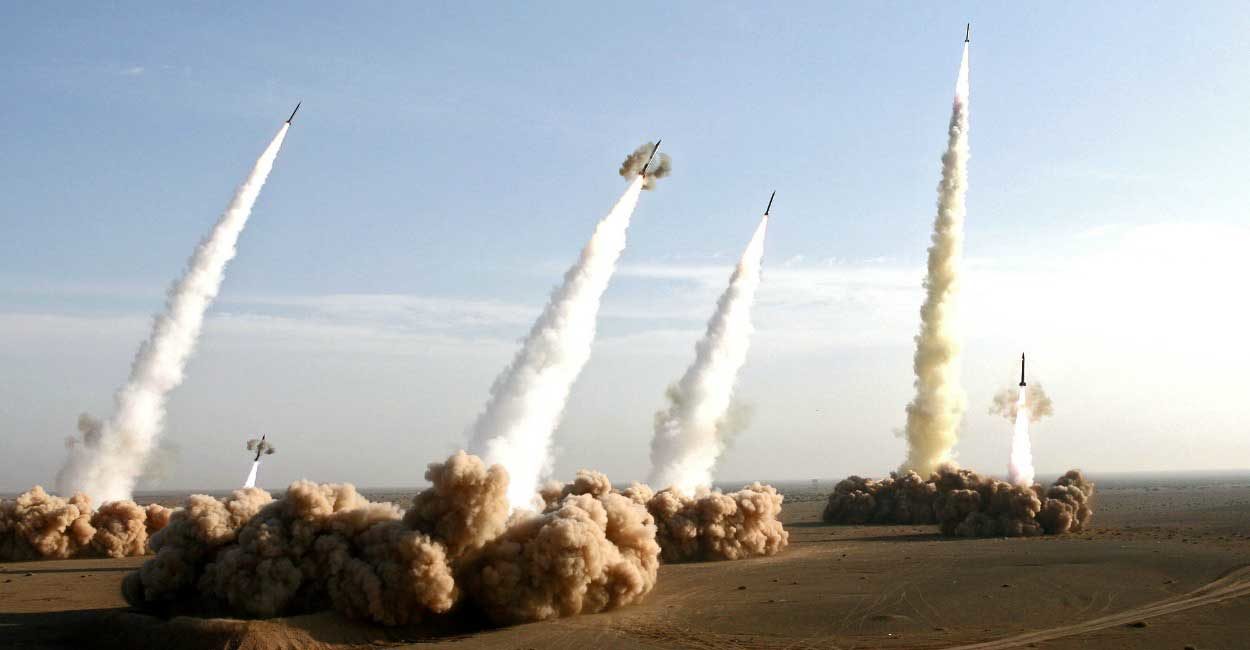GOP Senators Urge Trump Administration to Admit Iran Is Not Complying With Nuclear Deal
 A nuclear terrorist Iran is one of the most dangerous issues today.
A nuclear terrorist Iran is one of the most dangerous issues today.
A lobbying battle between critics and supporters of the Iran nuclear deal is becoming more heated, days before the Trump administration is due to give Congress a periodic verdict on Iran’s compliance and whether U.S. national security interests are being served.
Friday marks the second anniversary of the day the marathon nuclear negotiations in Europe delivered the accord known as the Joint Comprehensive Plan of Action (JCPOA). Three days later comes the deadline for Secretary of State Rex Tillerson to tell Congress whether Iran is complying, and whether the suspension of sanctions under the deal is vital to U.S. national security.
Among those weighing in on either side of the argument are a quartet of leading Republican senators and a group of retired senior rank military officers.
The former – Sens. Tom Cotton (Ark.), David Perdue (Ga.), Ted Cruz (Texas) and Marco Rubio (Fla.) – urged Tillerson this week not to certify that Iran is in compliance with its JCPOA obligations. Non-certification would open the door for a rapid restoration of sanctions against Tehran.
In a letter they listed several alleged Iranian violations, including exceeding JCPOA-imposed limits on heavy water stocks, illicit attempts to procure nuclear technology, and refusal to admit international inspectors to military facilities.
The GOP senators also said that the regime’s non-nuclear-related behavior should also invite a change in U.S. policy, citing regional aggression, sponsorship of terrorism, ballistic missile activity, and oppression of the Iranian people.
“Even if we put aside issues related to Iran’s violations of the JCPOA, the full suspension of U.S. sanctions falls far short of being ‘vital to the national security interests of the United States,’’ as required by [the 2015 Iran Nuclear Agreement Review Act],” they wrote.
“In fact, a continuation of current policy would be tantamount to rewarding Iran’s belligerence.”
The 2015 legislation referenced in the letter requires the administration to certify to Congress every three months on Iran’s compliance and U.S. national security. Tillerson did so for the first time on April 18.
On the same day, however, he announced that the president had ordered an interagency review into the JCPOA, to determine whether the suspension of sanctions under the agreement was vital to U.S. national security interests.
The next certification is due by Monday.
Cotton, Perdue, Cruz and Rubio concluded their letter by urging against continuing “the Obama-era practice of offering sheepish and faint-hearted certifications as a matter of course, hoping no-one takes notice. That is the surest way to encourage Iran’s campaign of imperial aggression and speed its progress toward nuclear breakout.”
A similarly unfavorable view of the previous administration’s handling of the JCPOA was expressed by an independent non-proliferation expert, Institute for Science and International Security president David Albright, in testimony on Capitol Hill in April.
“Too often, the Obama administration made concessions, tolerated cheating, or avoided strengthening steps out of a misplaced fear that Iran would walk away from the deal or that somehow President Rouhani’s presidency needed protecting,” Albright told the House Oversight subcommittee on national security.
“One must ask based on the JCPOA’s implementation so far, why have the deal in the first place if verification steps or strengthening measures have been avoided for fear of the JCPOA failing?”
Proponents of the JCPOA, meanwhile, paint it as a great success.

benefits of using steroids
References:
https://git.ctrlk.work
what does steroids do to women
References:
git.healthathome.com.np
steroids pills muscle growth
References:
libochen.cn